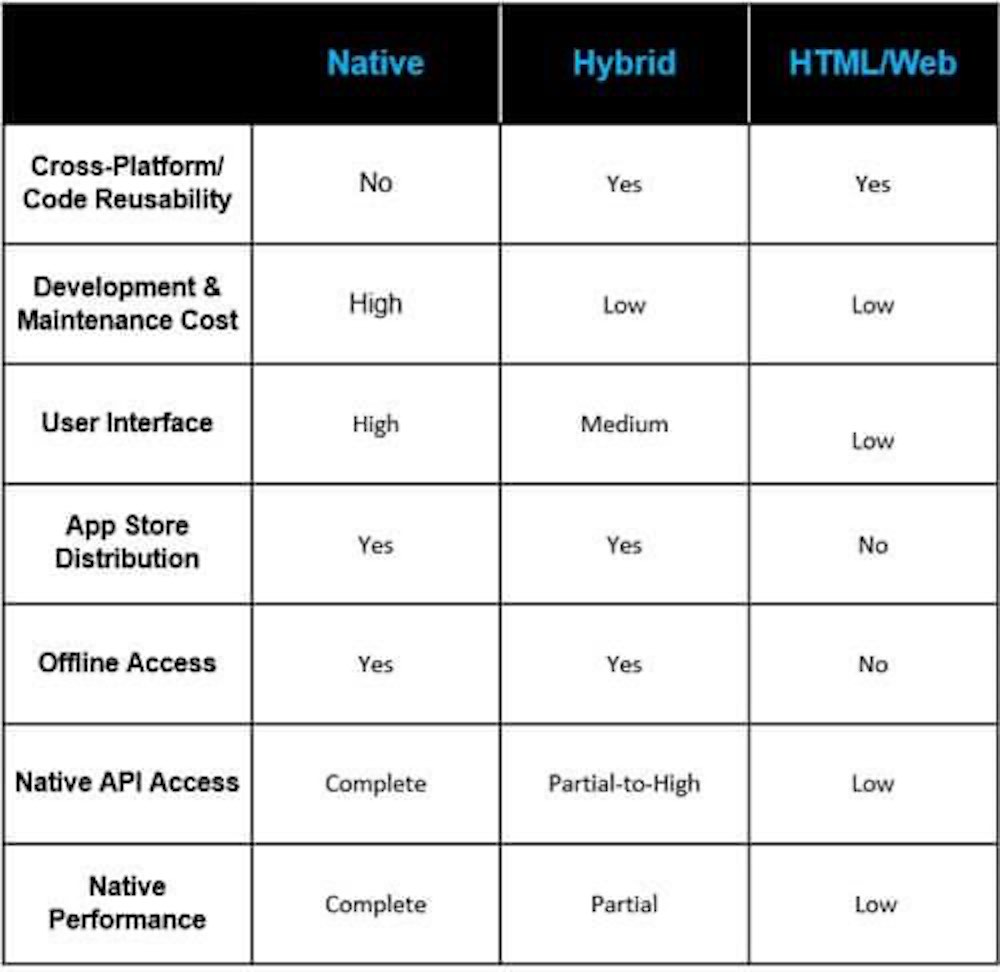Now that you are deciding to build a mobile application for your website, you must have encountered three different mobile app varieties – native, web, and hybrid. So, which one have you voted for your mobile application?
All three applications, no doubt, have their own intrinsic value, but choosing only one among them is definitely a challenge. And it seems like you have also faced that hurdle.
Well, for mobile app development such troubles are quite common. But worry not, if you are reading this article. This article will guide you to choose the best approach and build a successful mobile app for your business.
Native Application
Native applications are platform-specific and require specific language for development. For example, for Android platforms, Java or Kotlin is used while for iOS devices it uses Swift or Objective-C.
Pros of choosing Native mobile app
- Native apps perform well and receive complete support from the app stores and marketplace.
- Native apps are responsive and provide good user experience.
- Native apps ensure quality, security, and device compatibility.
- Native apps follow the specific UI guidelines and standards based on the mobile OS.
Cons of choosing native apps
- Native apps are difficult to develop as it uses advanced coding. They are complex compared to other applications.
- Native apps are expensive and time-consuming.
Web Application
Web apps are basically the websites that perform similarly like a mobile application. They contain website content and can be loaded in browsers like Chrome, Firefox, etc. The only thing that makes these web apps different is they do not require a download option to download from app stores like native apps. HTML, JavaScript, and CSS are used to build such apps.
Are you looking for a simple mobile application with cost-friendly features? Web apps are surely the right choice.
Pros of choosing web app
- Web apps are easy to build and easy to maintain. They use a simple and common code base for all mobile platforms.
- Web apps are cost-effective and can be built across all mobile platforms.
- Web apps neither follow standard OS protocols nor wait for any approval from marketplaces. They can be launched at any time irrespective of format.
- There is no need to update web apps manually. Whenever the app is opened, the latest version automatically runs on it.
Cons of choosing web app
- Web apps require a browser to run. Since different users use different browsers, it is hard to collect the performance metrics of the app to create a product roadmap.
- Web apps are slower and less responsive compared to native apps.
- Since web apps are not available at the app store, they have fewer branding opportunities.
Hybrid Application
As the name suggests, hybrid applications are the combination of both native and web apps. They can be built across multiple platforms using HTML, CSS, and JavaScript languages like web apps. They work like web apps but contain native features. Rocket Lab also weighs into the discussion on Native vs Hybrid apps, you will find their insights informative and timely for business owners about to embark on app development in Australia.
Pros of choosing hybrid apps
- Hybrid apps work as web apps but they do not require a browser to run.
- Hybrid apps use a single codebase for all platforms.
- Hybrid apps pave a way to the device’s internal APIs and hardware.
Cons of choosing hybrid apps
- Hybrid apps are slower and quite expensive.
- For hybrid app development, you have to depend on a third-party platform to make use of the wrapper.
Which will be the better one for mobile app development?
Answer to this question basically stands on four different pillars –
- The speed of the application
- The budget for app development
- Features you need in your mobile application
- The quality that you can’t compromise
Even if you have understood the strengths and weaknesses of every app, considering these factors is necessary before you end up choosing anyone among the three – web, hybrid, and native mobile apps.
Make the right choice, instead of biting your nails later on!









